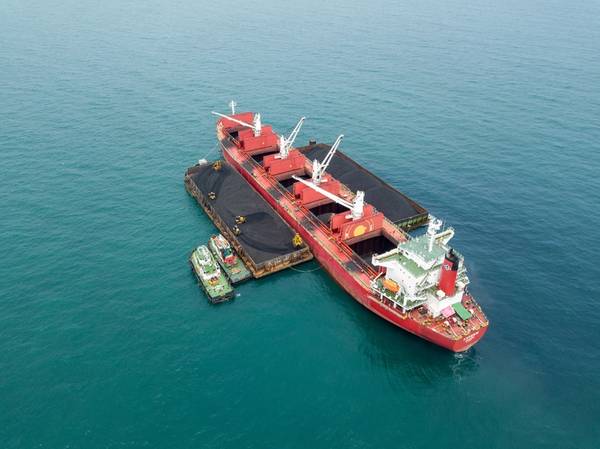
The Baltic Exchange's main sea freight index dipped on Monday on losses in the large and medium-sized vessel segments.
The index, which factors in rates for capesize, panamax and supramax shipping vessels carrying dry bulk commodities, inched 10 points lower, or 0.3%, to 3,282.
The capesize index dropped 34 points, or 0.8%, to 4,272.
Average daily earnings for capesizes, which typically transport 150,000-tonne cargoes of iron ore, lost $284 to $35,429.
Chinese ferrous futures fell on Monday, with steel rebar and hot rolled coils both plunging some 6%, after Beijing updated its stance on carbon reduction work, raising worries of an adjustment in output cuts.
Benchmark iron ore futures extended losses into a fifth straight session; closed down 0.9% at 1,054 yuan per tonne.
The panamax index dipped 14 points, or 0.4%, to a near two-month low of 3,290, extending a losing streak that began on July 5.
Average daily earnings for panamaxes, which usually carry coal or grain cargoes of about 60,000 tonnes to 70,000 tonnes, were down $124 at $29,610.
The supramax index rose 14 points to 2,959.
(Reporting by Seher Dareen; Editing by Shailesh Kuber)


